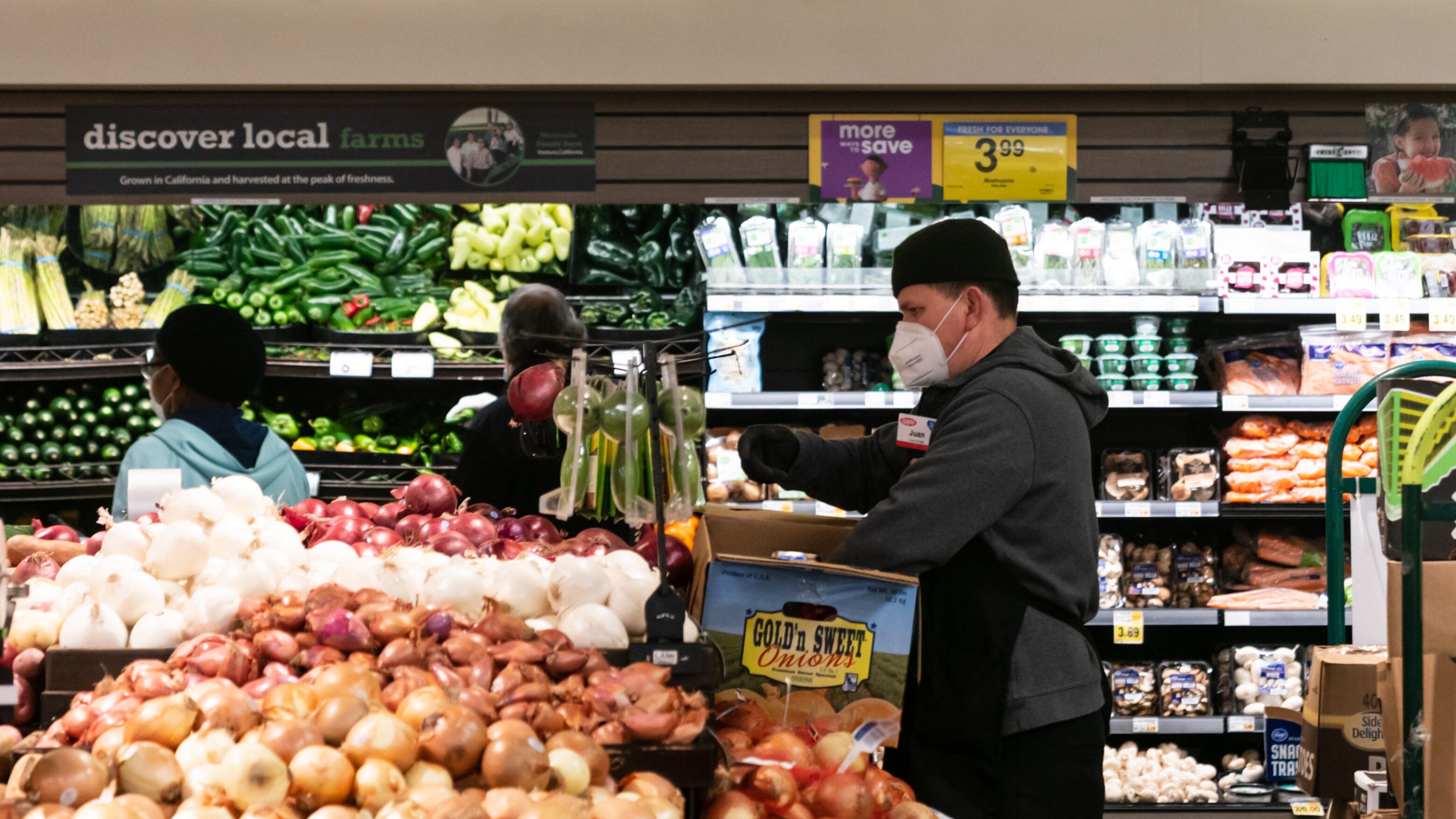“I eat avocados like every day,” said Valerie Santana, a freshman public relations and advertising major. “I love avocado.”
Avocado toast with egg is her favorite meal. However, she might have to find a new favorite as the price of eggs has been high and the price of avocados may increase.
“It’s kind of heartbreaking, especially as a college student when you’re trying to save,” Santana said.
On Monday, President Trump imposed 25% tariffs on most imports from Canada and Mexico, and 15% tariffs on imports from China. California’s supply chain is bracing for impact because the state relies on imports from Mexico, Canada and China for more than 40% of its goods.
According to the U.S. Department of Agriculture, nine of 10 avocados consumed in the United States are imported from Mexico.
The Tax Foundation reports that Mexican tariffs cost U.S. households an average of $435 per year, while tariffs on Chinese goods add $329 annually to the average household’s expenses.
Lars Perner, associate professor of clinical marketing at the Marshall School of Business, explained how consumers might be affected, saying that finding foods like avocados won’t be an issue.
“If you’re willing to pay 25 or 30% extra for avocados, you’ll be able to get them,” he said.
Gavin Newsom released a statement in response to Trump’s decision to impose tariffs, calling them “nothing more than a tax on hardworking American families — driving up the cost of groceries, cars, and essential goods.”
The tariffs won’t only affect families but also students like Aarush Saini, a sophomore chemical engineering major.
“I haven’t been grocery shopping in a while,” Saini said. “Every time I go, I end up spending a lot of money and a lot more than I expect to.”
Saini said he avoids grocery shopping because of the high cost.
“Lately, I just haven’t been eating as much as I should,” he said.
Mexico is the primary supplier of tomatoes, raspberries, bell peppers and strawberries. Tomatoes are something that Saini incorporates into his meals, but if the prices rise, he might have to forgo them.
“I think now it’s just focusing on what I actually, like, need need,” he said. “And what I can put together for a meal rather than getting things that may add to a meal, but aren’t necessary for the meal.”
But Sanini isn’t the only one faced with hard choices. Companies have to determine whether they will take on the high price of goods or pass it on to the consumers.
“Companies don’t really have much of an option [but] to pass on the costs,” Perner said.
Ted Chiou, a sophomore finance major, says the potential of rising prices stresses him out.
“It’s unaffordable,” Chiou said. “As a college student trying to cook more, it feels bad because I have to worry about maxing my monthly budget.”
Canadian Prime Minister Justin Trudeau announced immediate retaliation to U.S. tariffs, imposing a $30 billion counter-tariff on U.S. goods, set to increase to $155 billion within 21 days, targeting items like beer, wine, bourbon and home appliances.
“Historically, tariffs have been quite ineffective. Oftentimes, they actually worsen the trade deficit that a country has because other countries retaliate. So it’s generally a very bad idea for the economy,” Perner said.
In a White House Fact sheet, Trump said he was imposing tariffs under the International Emergency Economic Powers Act (IEEPA) to “combat the extraordinary threat to U.S. national security, including our public health posed by unchecked drug trafficking.” He added that part of the reasoning was to stop undocumented immigrants from entering the U.S.
While Perner believes tariffs are bad for the economy, there could be an upside when it comes to foods like chicken because there isn’t an export market for it anymore.
“Prices of chicken meat potentially could go down because the United States actually exports a fair amount of chicken to Mexico, but now if Mexico enforces retaliatory tariffs, then chicken imported from the United States is going to be less attractive,” Perner said.
Mikayla Bautista, a sophomore majoring in electrical and computer engineering, said she now has to decide whether buying certain produce is worth it for her or not.
“As a broke college student, you want to spend your money wisely,” she said.
